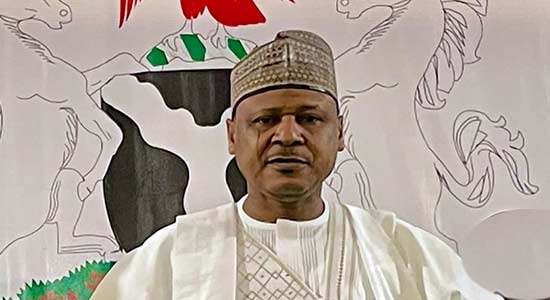BREAKING: Take Terrorists Off Front Pages, FG Begs Media

The federal government has appealed to media professionals to refrain from giving undue publicity to terrorists, bandits, and other criminal elements threatening the peace and security of the country.
Speaking at the seventh edition of the 2025 Ministerial Press Briefing yesterday in Abuja, the Minister of Information and National Orientation, Mohammed Idris, underscored the critical role of the media in shaping public perception and supporting national security efforts.
“The media, as gatekeepers and partners in nation-building, have a crucial role in supporting our military’s morale by highlighting their successes and sacrifices,” he stated.
“We must deny these groups the undue publicity they crave. We must take them off the front pages and accurately report them as the criminals they are, without glorifying their acts or giving credence to their false narratives.”
The Minister emphasised that terrorist and criminal groups often manipulate media coverage and social media platforms to spread fear, propagate disinformation, and recruit followers.
In this context, he urged journalists and editors to adopt a responsible and patriotic approach to reportage by avoiding sensational headlines and refusing to serve as inadvertent amplifiers of terror propaganda.
“These are not freedom fighters; they are murderers, kidnappers, and destroyers, and they must be presented as such,” he said.
Highlighting President Tinubu’s Renewed Hope Agenda—particularly its pillar on Strengthening National Security for Peace and Prosperity, the Minister statrrd that the federal government is actively investing in military capacity through acquiring modern equipment, enhanced intelligence, and strategic partnerships.
The minister of defence, Alhaji Mohammed Badaru Abubakar, and his counterpart in the Ministry of Environment, Alhaji Balarabe Abbas, also briefed the media on the successes recorded in their respective ministries.
Badaru rejected claims that Nigeria’s military is outgunned by terrorist groups, stating that the country’s armed forces possess far superior weapons and technology.
He said the current challenge is not a lack of firepower but rather the unpredictable tactics used by terrorists, often aided by informants within local communities.
Badaru refuted remarks made by members of the House of Representatives, who had raised alarm over the strength of terrorist factions following a recent attack on a military installation in Giwa, Borno State.
The lawmakers had described the incident as evidence that Boko Haram insurgents were better equipped than the Nigerian troops tasked with tackling them.
But Badaru dismissed this, emphasizing that the challenge lies more in the insurgents’ irregular warfare tactics than in the military’s inferiority.
Addressing concerns about drone usage by terrorist groups, Badaru clarified that while such groups have deployed modified civilian drones, they are not using weaponised or military-grade variants.
He said, “They’re not using armed drones with strategic guidance. We are doubling our local and international intelligence efforts to track and cut off supply sources. ”
Badaru also responded to the Senate’s proposal for a national security summit, acknowledging its potential contributions but stressing that effective strategies are the true cornerstone of improved security.
He said, “The summit will give you some input on the plan. When you hold a summit, you have people who talk. We take what they expect and go back to design or renew our strategy.
“And then the Chief of Defence Staff gives operational orders based on the strategy they developed. So what the National Assembly is trying to do is to bring people together to discuss issues. You hear a lot.”
Providing an update on domestic defence manufacturing, Badaru disclosed that the Defence Industries Corporation of Nigeria (DICON) is gradually ramping up local production.
“Out of 53 companies operating within the complex, 10 have already begun producing military-grade hardware, including drones, aircraft components, and protective gear.
“We are working to see if we can sustain a section in Ajaokuta that will support our efforts to make DICON more vibrant.
“Currently, with the support of the president, the Governor, and the Chief of Defence Staff, DICON— as many of you know — is hosting 53 companies. Most of them are at various stages of constructing their factories. About 10 companies have already commenced production, including manufacturing drones, aircraft components, personal computers, helmets, safety vests, and other equipment.
“So far, 10 have begun production, and we are targeting at least 20 companies to be operational by the end of the year. By next year, we aim to begin exporting,” the defence minister said.
